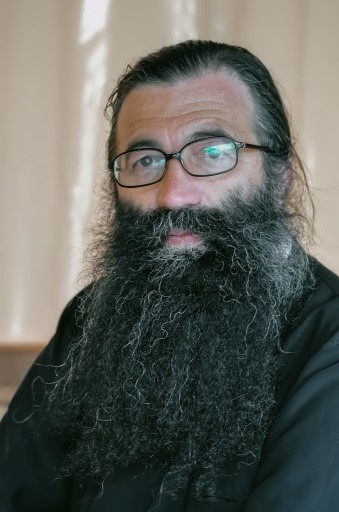Hey, fellow Elimites. How’s your fellowship with one another going? If you’re like me, it’s been a struggle.
I’ve grown weary of mainly seeing other humans through my computer screen. Zoom meetings are a handy tool, but they’re a poor substitute for seeing one another in person. And let’s not even get started on Facebook. Chatting with my folks from a thousand miles away can’t replace a good hug.
I think at this point, no one would disagree much about the value of seeing each other in person. It’s incredibly important, and we’re hurting from not having it. But as we move our church services from the parking lot back into the building and tackle the practical challenges of being indoors again, I worry about some of the habits we’ve developed in our extended isolation. I’d like to talk about some of the spiritual challenges in, once again, seeing each face to face.
Seeing Humanity
The first challenge is, I think, the more obvious of the two. We’ve lost sight of our brothers and sisters’ God-imaging humanity. That might sound a bit extreme, but I think that’s what interacting largely through social media and computer screens has been training us to do. As C. S. Lewis said in The Weight of Glory:
There are no ordinary people.
You have never talked to a mere mortal.
Nations, cultures, arts, civilization—these are mortal, and their life is to ours as the life of a gnat.
But it is immortals whom we joke with, work with, marry, snub, and exploit—immortal horrors or everlasting splendors.
We’ve forgotten what it means to work with, play with, and live with beings made in the wonderful image of our creator God. These are the people we argue with, hurt, and dismiss so brazenly online. When we’re in community and facing one another regularly, it’s much harder to dehumanize the human who’s right in front of you. As we step back into community, we’re going to have to embrace the challenge of seeing and treating one another as image bearers of God and not merely as whatever category social media has trained us to see each other as.
Vulnerability
The second challenge is slightly more insidious—and for me, at least, probably the harder of the two. We’re going to have to let others see us again.
Now, that might sound very obvious and, honestly, pretty easy. Just show up, right? But the natural effect of us dehumanizing and judging one another is that we’ve learned to hide ourselves away to avoid that very same dehumanization and judgment. As we treat others, so we expect to be treated. Other people can’t hurt you if you don’t show up, don’t enter into relationship, and don’t embrace the vulnerability required to live in community. There’s risk in being known, and certainly some hurt. But I think, in this season, one clear act of taking up our cross and following after Christ is going to be in our earnest pursuit of relationship. No hiding ourselves away. We’re going to have to look at one another face to face.
Even as the world has tried to train us to view one another through a combative lens, we must adhere to the teachings of Jesus when he says:
You have heard that it was said, “You shall love your neighbor and hate your enemy.” But I say to you, Love your enemies and pray for those who persecute you, so that you may be sons of your Father who is in heaven. For he makes his sun rise on the evil and on the good, and sends rain on the just and on the unjust. For if you love those who love you, what reward do you have? Do not even the tax collectors do the same? (Matthew 5:44-46)
Fellow Elimites, we are not enemies. However, we do ourselves a disservice if we don’t recognize our drift towards viewing one another that way. It is easy to congregate and gather with those we agree with, but there’s nothing Christ-like about that. True Christlike love will gravitate towards and humbly, kindly serve those who would, according to the world, be our enemies. Even within the family of God, we must find a way to apply this teaching. It might even be harder here, but do it we must.
Think and pray about this. Even if you’re not ready to come to an in-person service, consider how you can creatively (and safely) enter back into relationship with your fellow Christians. Our courage in this season isn’t mainly about how we respond to the virus—it’s about how we respond to each other. Will we give grace and wait on it from our brothers and sisters? Or will we come ready to fight?
P.S.—Shout out to all you who are rightly appalled at the blatant theft of my title from C. S. Lewis’s brilliant book Till We Have Faces.
Views – 248
 Follow
Follow
